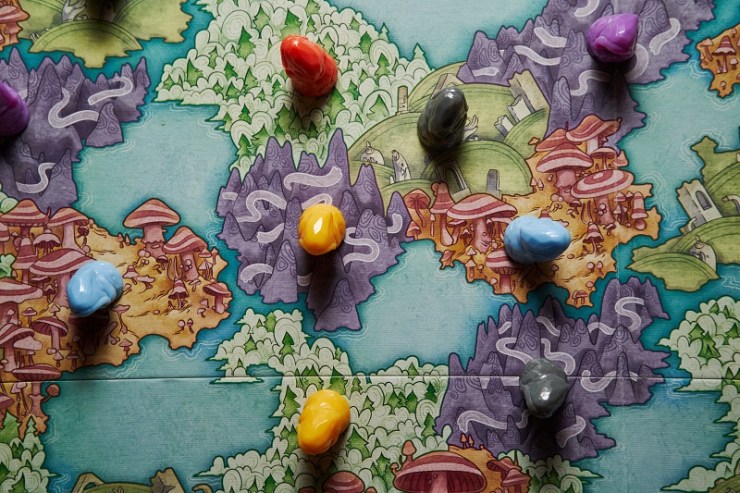I don’t watch movies more than once. I don’t reread books or replay video games. I always scan the menu for something I’ve never tried before at my favorite restaurants. Sure, I have my routines. I eat the same thing for breakfast every day and I get ready for bed in a particular fashion. But when it comes to entertainment, things I do for enjoyment, I’m always on the search for my next favorite. I always feel like revisiting my favorites is a bit of a wasted opportunity. My favorites are a known quantity. The unknown is full of possibilities. I could encounter something so awe-inspiringly good as to render my previous notion of what I like completely meaningless. So I will continue to try new things. I will continue my search for my new favorite. But when it comes to board game, well, it’s a little different.

When it comes to my cardboard pastime, I tend to stick with any given game much longer than any other form of entertainment, that is to say, more than once. There are a few reasons for this. Board games require homework. There’s an investment required, sometimes multiple hours worth, just learn how to play. I’ve taken on the role of primary rule explainer. It is a dubious honor, but one which I take seriously. It’s not enough to internalize the rules; I take time to think about and rehearse the best way teach my opponents how to play as well. Because as much fun as it is to fiddle with your bits alone, it’s so much better when you’ve got some company.
This front-loaded burden is one I tackle alone. I realize that every new game I bring to the group is a communal effort. It’s like asking my friends to do a group project, and we all remember how fun those were from school. And it’s not just the mechanical act of memorizing rules. Different games require different mindsets, different moods, and different conventions. The result is that the first play of any given game is often not the best experience. It can be very enjoyable, but there’s still an element of uncertainty as everyone is developing their sea legs. There’s a slight hesitation to everyone’s moves and strategies, a palpable pause from turn to turn.
It almost seems unfair that after all the work we put into just getting the game learned and played, we move on to the next one. It’s not just the drudgery of going through the cycle again for the next game; it’s that we would never get to play the first game in it’s best form. I still have that urge to see something new, but I don’t want to move on until I’ve experienced a game at its best, which will take at a least a few plays.
Of course there are the physical and monetary constraints that keep me from chasing the latest and greatest. I’ve nearly reached max capacity, and the effort of paring down my current collection is often more trouble than it’s worth. So I stick with what’s available more regularly.

So as I tread familiar ground with my games, I’ve begun to wonder and notice how board games try to keep things fresh from game to game. Does it even matter? So often I see board games trying to sell themselves on the sheer amount of stuff included in the box. 12 different goal tiles! 16 victory point paths! 30 randomizable terrain tiles! I guess that’s cool, but those type of things have never been a big selling point for me. It often feels like quantity is trying to make up for dynamism. I play so much from my gut that I can’t be bothered to internalize opening moves or seek out specific synergies. I can usually get a grasp of broad strategies, but it’s never so rote as to be dependent on having certain tiles or cards show up. Maybe I’m not mindful enough to notice.
Where I do appreciate quantity is player powers. I love them, and I love seeing more of them. It’s mostly due to the fact that their impact on the game is so immediate and easily discernible that when a new one shows its face, I can recognize that this session is different. Not only will I see something different this game, I’ll be doing something different as well.

But not every game has player powers, nor should every game have them. The most important tool a game can leverage for game-to-game variety isn’t even included in the box. It’s the players themselves. If a game can manage to entice players to make decisions that ripple over into the decision space of the other players, that’s a recipe for long-term success. People are infinitely more complex and varied than any game can ever be, so interacting with them is where I find myself comfortable with not moving on to the next game. Instead of moving to the next game, I’m content with playing the same game in search of the next best individual game session.
While I can enjoy a solitaire efficiency puzzle from time to time, it’s so much easier for me to move on from these to the next game. I can get a good sense of the what the game is and then start searching for the next best thing. But when I’m mentally jousting with my opponents and really getting into their heads, I can anticipate the next game session with glee, knowing there’s a lot left to see and potentially my next great gaming moment.




